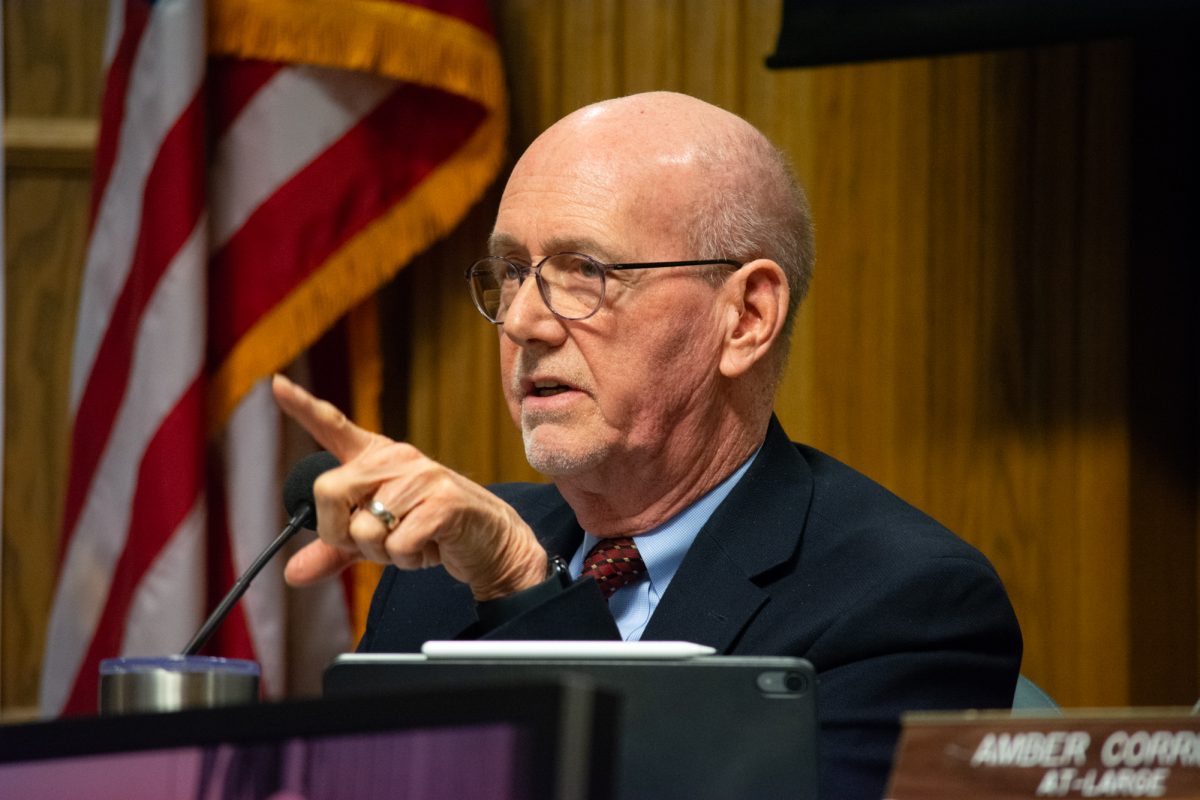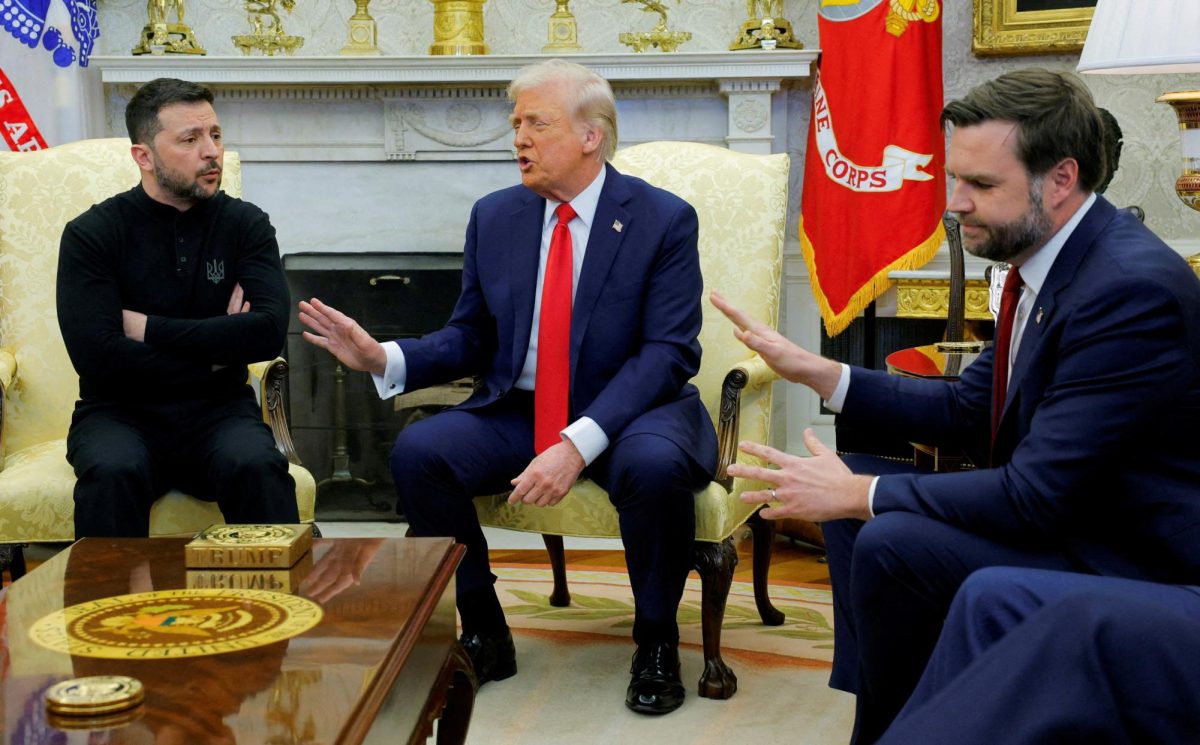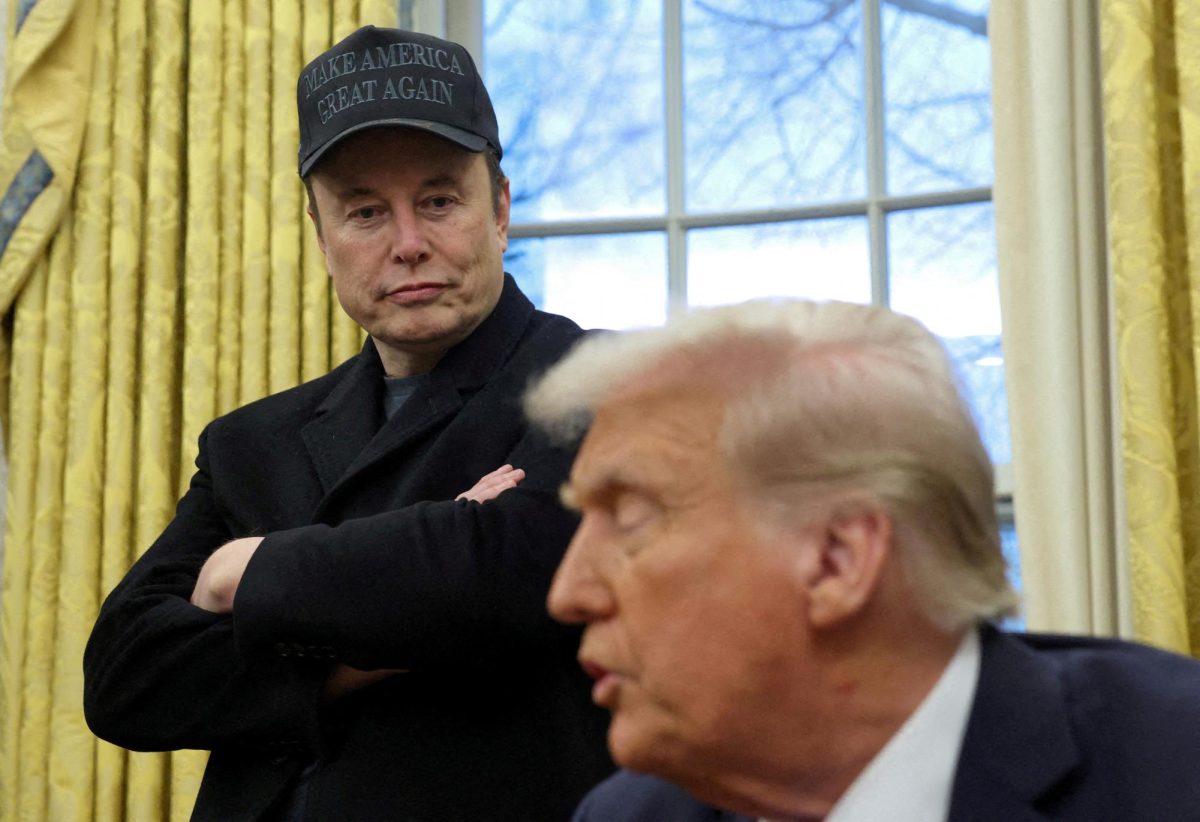Writing columns on antiracism and social justice has taught me that not everyone will be interested in reading my columns. And that’s OK. Some wish to learn about the issues on their own. Some prefer reading different writers. Which is also OK.
In this and in subsequent columns I will collaborate with artificial intelligence to write about various social ills. From hate to racism, poverty, hunger and healthcare.
My AI partner is the free version of a chatbot called ChatGPT. The chatbot uses complex algorithms to scan large sets of data for responses to prompts provided by the user. This gives ChatGPT the capability of generating dialogue in natural language. The prompts I will use will be simple to demonstrate that no special training is needed to engage with AI to seek answers to social justice issues.
My hope is that AI can help build a critical mass required to dismantle hate and injustice. So let’s talk more about hate.
Why do people hate?
How can someone hate so much to the point of storming into a nightclub and carrying out one of the deadliest mass shootings in U.S. history? The incident that happened in 2016 was precipitated by hate for people for being gay. After the shooter was done executing his carnage at the Pulse gay nightclub in Orlando, Florida, 49 were dead and dozens injured.
How can someone hate so much to the point of descending on a Walmart grocery store in El Paso, Texas to shoot people? The incident that happened in 2019 was about hate for Hispanic people. After the shooter was done, 23 were dead and 22 injured.
Then there was a 19-year-old white gunman who killed 10 Black people at Tops grocery store in Buffalo, New York, in May 2022.
Then there was a 21-year-old white gunman who killed three Black people at a Dollar General store in Jacksonville, Florida, in August 2023.
Why did the gunmen kill their Black victims? Their manifestos said they hated Black people. They hated so much that arming themselves with AR-15-style rifles and shooting Black people was a solution.
Why did the gunmen hate gay, Hispanic and Black people?
Some say mental health. Others decry radicalization, politics and unregulated guns. But there is more. Let’s now hear from ChatGPT. To be clear which text is from ChatGPT, I have provided its responses in italicized text below.
Why do humans hate?
From a psychological perspective, hate often stems from feelings of threat, insecurity or perceived injustice. Socially, tribal instincts and ingroup-outgroup dynamics contribute, as humans tend to favor those similar to themselves and vilify perceived differences. However, it’s important to note that hate is not an inherent trait but a learned response. Understanding its origins can facilitate efforts to counteract it through education, empathy promotion and fostering inclusive societies that challenge divisive narratives.
How is hate learned?
During childhood, exposure to biased attitudes from family, peers and media can shape perceptions of different groups. These attitudes are reinforced by direct experiences, where negative interactions or stereotypes become associated with certain individuals or communities. As humans seek to make sense of their environment, they absorb and internalize the learned cues, gradually forming a framework for prejudiced beliefs and discriminatory behaviors. Recognizing this learned nature of hate is essential for fostering tolerance and dismantling its roots.
How can we dismantle hate?
First, revamping education by promoting diverse curricula and history that highlight achievements and struggles of marginalized groups fosters empathy. Additionally, media literacy programs can teach critical consumption of information, reducing the reinforcement of biased narratives. Community initiatives, such as dialogues and collaborations among diverse populations, break down stereotypes. Legal measures should target hate crimes and discrimination while supporting restorative justice. Last, political leaders advocating for inclusive policies and condemning divisive rhetoric set a precedent. By intertwining education, media, community engagement, legal reforms and leadership, society can unravel the deep-seated threads of hate.
How can AI help dismantle hate?
AI can combat hate by leveraging its analytical capabilities to identify and counter biased content online. Natural language processing algorithms can detect hate speech, enabling platforms to promptly remove or moderate such content. Sentiment analysis helps gauge public opinion, aiding policymakers in addressing concerns. AI-powered recommendation systems can promote diverse perspectives, reducing echo chambers. Educational AI tools can teach empathy and inclusivity, targeting younger generations. However, caution is needed to ensure AI’s decisions align with ethical standards and avoid unintended biases. Integrating AI into content moderation, education, and policy-making holds promise in mitigating hate’s digital proliferation and promoting a more tolerant online environment.
What would a hate-free United States look like?
In a hate-free United States, people of all backgrounds would coexist harmoniously, valuing diversity as a strength. Education would emphasize empathy and critical thinking, eradicating stereotypes and prejudices. Media would present a rich tapestry of perspectives, fostering understanding. Systems of justice would be vigilant against discrimination, ensuring equal protection for everyone. Communities would actively engage in cross-cultural dialogues, forging genuine connections. Political leaders would prioritize unity, denouncing divisive rhetoric. Economic opportunities and resources would be equitably distributed, reducing inequalities that often fuel animosity. Ultimately, a hate-free U.S. would stand as a model of inclusivity, respect and cooperation on a global scale.
Editor’s Note: This story is part of a weekly series by Walter Suza. Each new story of his will be uploaded on Sundays.
…………………………
Walter Suza is George Washington Carver Endowed Chair and Adjunct Associate Professor in the Department of Agronomy.









David Jackson | Sep 7, 2023 at 8:44 pm
“First, revamping education by promoting diverse curricula and history that highlight achievements and struggles of marginalized groups fosters empathy.”
-Suza
No, it does not, it fosters division. It ties achievements and struggles to people based upon their group identity instead of being human in the situations they found themselves in.
“Additionally, media literacy programs can teach critical consumption of information, reducing the reinforcement of biased narratives.”
-Suza
Just what people need, critical theory applied to how you think about information. Getting all the facts reduces the reinforcement of biased narratives, adopting an ideology does the opposite. Only people who believe in biased narratives believe otherwise.
“Legal measures should target hate crimes and discrimination while supporting restorative justice.”
-Suza
Legal measures need to treat everyone as equal under the law, and not apply the law differently to various demographics, in order for real justice to function.
“Last, political leaders advocating for inclusive policies and condemning divisive rhetoric set a precedent. By intertwining education, media, community engagement, legal reforms and leadership, society can unravel the deep-seated threads of hate.”
-Suza
The “deep-seated threads of hate” are the fantasy dragon for people who can’t solve any of the world’s real problems (war, famine, disease, corruption) to virtue signal about slaying to feel important. The US was not built on hate or slavery and has less deep-seated threads of hate than any other human civilization. It’s why we fought our most costly war in lives and money, the Civil War, to end slavery and cite the founding documents of this country, the Constitution and Declaration of Independence, when advancing civil rights. Prejudice exists in human nature, and group differences will always trigger in-group vs out-group emotions in people. This does not equate hate, especially if a culture is set up to promote unity over diversity.
“Integrating AI into content moderation, education, and policy-making holds promise in mitigating hate’s digital proliferation and promoting a more tolerant online environment.”
-Suza
Wow, how is this not going to immediately devolve into AI censorship where if you disagree with the advertised moralizing slogan of a particular political narrative you’re labeled biased, hateful, and censored as the speed of a computer algorithm. Is there a reason arguing for and against ideas/policies/course of action based on merit isn’t feasible?
“In a hate-free United States, people of all backgrounds would coexist harmoniously, valuing diversity as a strength.”
-Suza
No. No! People of all backgrounds would coexist harmoniously precisely because they would value unity as a strength, not diversity. People can be from all backgrounds but focusing on what makes everyone different instead of what everyone has in common is precisely the problem, and where hate and division propagates from. In a hate-free United States, people of all backgrounds would identify as Americans first and foremost, unified in a monocultural respect for natural rights, separation of government powers, constitutional rule of law, and equal opportunity, protection, and application of our laws, and their race/sex/gender/orientation/etc. a distant second if considered at all. Education would emphasize academic excellence, particularly in math and science, and decision making based upon the comprehensive facts over emotions. Media would present all the known facts, without editorializing in news reports or choosing only to report what supports one ideological narrative. The justice system would enforce equal opportunity, protection, and application of the law, not equity of outcomes. Communities would 1) be who you live with in your neighborhood not your immutable characteristic identity, and 2) be a cultural melting pot to forge genuine unity regardless of your background, not group people on the basis of it.
“Economic opportunities and resources would be equitably distributed, reducing inequalities that often fuel animosity.”
-Suza
And there it is…the heart of what used to be PC, now the Woke mindset. Promoting centralized control of economic opportunities and resources to be “equitably” distributed, based on moralizing personal identity rhetoric to drown out any logical analysis with emotional appeal. Inequalities don’t fuel animosity, jealously and greed do that, and instead of giving everyone the equal opportunity and moral drive to achieve to the best of their ability, you tell them their lot in life is a result of their immutable characteristics in an inherently racist society unless they vote for centralized authority to shut it down and fundamentally change society to give them what you tell them has been unjustly stolen.
In other words, people either agree to central planning and central government control or they’re labeled a bigot, and you want to weaponize AI to sensor any speech critical of such ideology in public discourse. That’s not how a free society works.
A free society, especially a hate-free society, only functions when there’s transparency, and ideas are openly and publicly judged on their merits, labeled as good or bad based upon how they affect people in reality. This in contrast to authoritarianism, where the ruling party’s ideas are imposed as the only ethical option, and all others labeled hate to make open discussion unacceptable the few places where they can’t overtly sensor or ban it. Control of how the population thinks is the fantasy of tyrants.